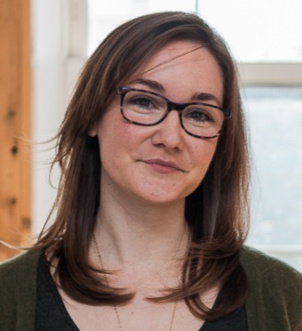Shannon Whitehead is working to change the fashion industry. First, she started a sustainable clothing company for female travelers and minimalists and now Whitehead shares her passions as a sustainable fashion consultant, writer and speaker. She has appeared as a keynote speaker at the World Education Congress and a guest lecturer at San Francisco’s Fashion Institute of Design and Merchandising. In this interview Whitehead talks with us about how Patagonia is an “industry game-changer,” shares her advice for new entrepreneurs, “don’t be vanilla,” and describes how she encourages innovation in her own work.
Triple Pundit: First, can you briefly describe the kind of work that you do now?
Shannon Whitehead: I'm a sustainable fashion consultant. I work with designers, as well as established eco apparel companies, on marketing, social media, branding, sourcing and manufacturing.
3p: Can you describe {r}evolution apparel?
SW: I co-founded {r}evolution apparel, a sustainable clothing company for female travelers and minimalists. In 2011, we launched our signature piece the Versalette, one garment that can be worn over 20 different ways, made in the USA with 100 percent recycled fabric.
3p: {r}evolution apparel is an innovative business for many reasons; how did you encourage innovation during the creation of this business?
SW: Whether we knew it at the time or not, {r}evolution apparel was innovative from its very start. In the beginning, it came from seeing a hole in a niche market and creating a product to fill it. Being travelers ourselves, we knew that for the most part there weren't stylish travel clothes on the market. We wanted something we could throw in our backpacks and take around the world with us, so we stopped looking for it and instead, designed it.
The Versalette itself is innovative in the way that it changes from a scarf to a shirt to a skirt to a poncho to a purse, and so on. We pushed the limits of what we thought it could do and to this day, we still find new ways to wear it.
3p: Are there any practices you use to encourage your own innovative thinking?
SW: I practice meditation and visualization. I also read a lot and listen carefully to industry leaders who I look up to. I probably do my most innovative thinking through observation, and then internalizing it and writing it down.
My co-founder [of {r}evolution apparel, Kristin Glenn] is great about journaling and would encourage me to do the same. It took a while for me to latch onto it, but now it's absolutely critical for me to get my thoughts on paper and sort through new ideas that come to mind.
3p: How do you encourage innovative thinking when you are working with clients as a consultant?
SW: As a consultant, I focus on getting my clients to visualize the big picture and set clear goals and expectations. Some of their most innovative thinking comes out of a good brainstorming session together. I do my best to create an open space for collaboration where even the wackiest ideas can emerge without fears of judgement.
3p: Can you think of any companies that you look to as leaders in innovation?
SW: Patagonia, hands down.
3p: What do you think we can learn from them?
SW: Not only are they innovative in their technologies for sourcing and manufacturing, they are also industry game-changers. Despite being in the retail industry, they encourage their customers to buy less, live more simply, and think thoughtfully about their purchasing decisions. Compared to the mass fast-fashion message of "buy more!" and "you need this!" Patagonia goes against the grain and dares to be different.
3p: Do you have any advice for new social entrepreneurs about how to integrate innovative thinking into their business plan and growth?
SW: Look for the holes. Put yourself in the shoes of the consumer and ask yourself what they want. Once you uncover their core desires, you can figure out a way to give them what no one else can. Innovative thinking means tapping into the place where no one else is brave enough to go. Don't be vanilla.
Looking for more conversations about innovation? Check out the TriplePundit interview with John Ujda from Better World Books.
[Image credits: (1) shannonwhitehead.com; (2) revolutionapparel.is]
Heidi Sistare is a freelance writer who just completed the documentary writing and multimedia storytelling program at the Salt Institute for Documentary Studies in Portland, Maine. She holds a BA in Social Work from Warren Wilson College and has experience in non-profit management, community development, and planning for small businesses. Visit her website at: www.heidisistare.com

Heidi Sistare is a freelance writer who just completed the documentary writing and multimedia storytelling program at the Salt Institute for Documentary Studies in Portland, Maine. She holds a BA in Social Work from Warren Wilson College and has experience in non-profit management, community development, and planning for small businesses. Visit her website at: www.heidisistare.com














